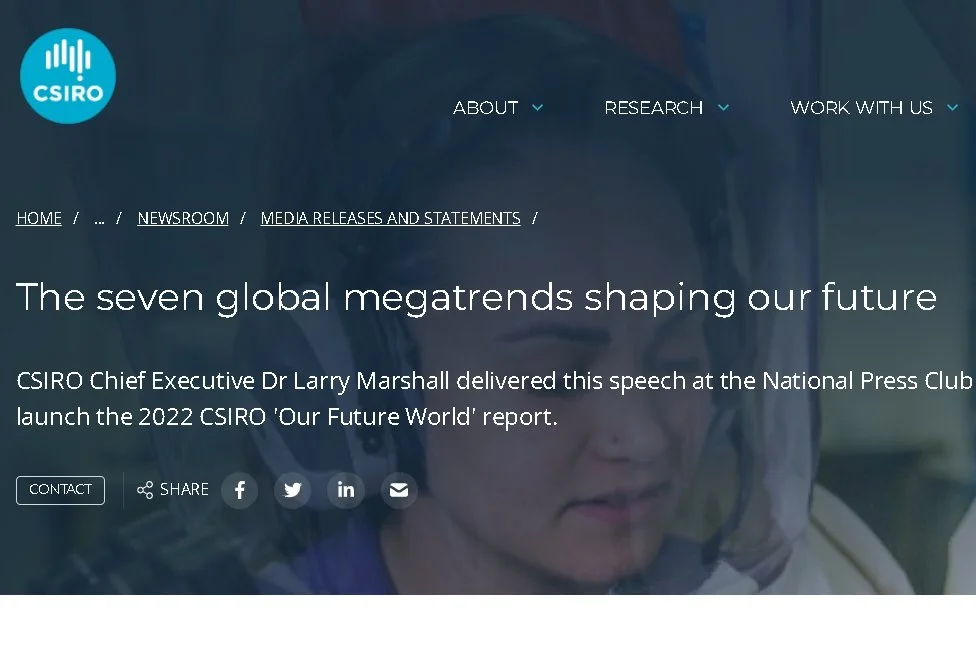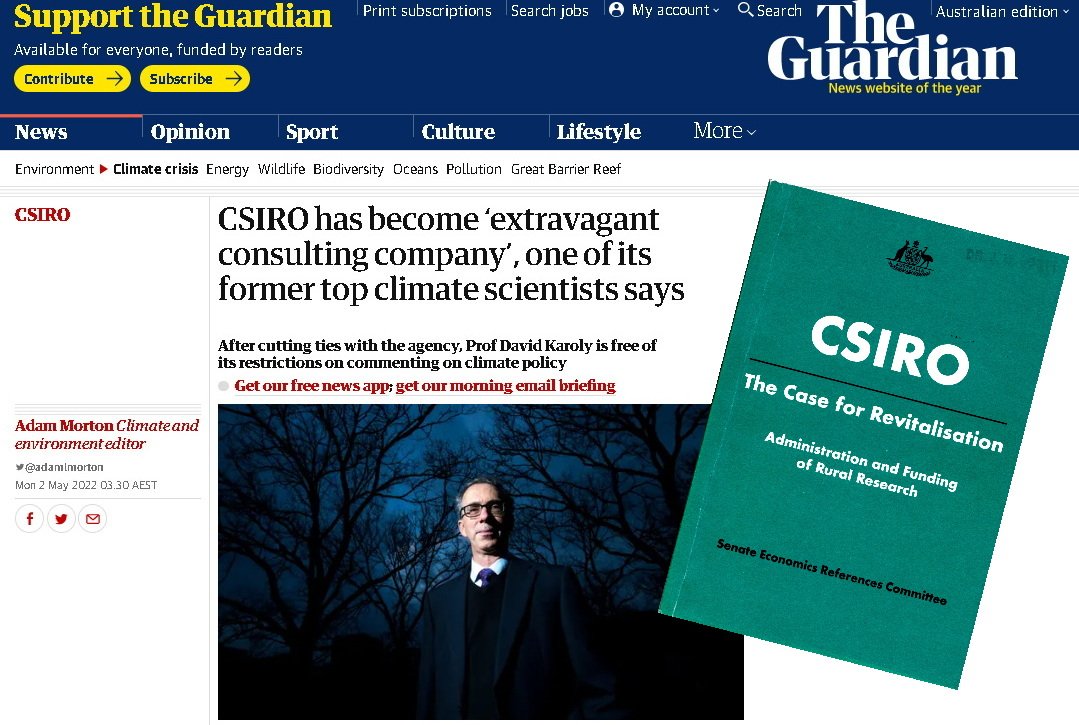This is the 1st part of a series of three blogs which form My Love Letter to Late Night Live. We know that there has been a loyal growing audience for LNL, especially as podcasts. I hope that this series of blogs will provide readers with a glimpse of how one particular listener - an ordinary scientist - enjoys an eclectic mix of episodes. I trust that LNL, and other quality programs on the ABC, will continue to expand their reach, educating listeners with matters vital for growing our nation’s wisdom, culture and democracy.
Read MoreThis is the 2nd part of three in this series My Love Letter to Late Night Live. It starts with some Content links to a wide range of topics covered in this eclectic mix of interviews I have listened to and thought they were worthy of letting others know about them. It is a long blog and I don’t expect many will want to read it all. Hopefully, you can skip around from topic to topic, find something that interests you, note down the number in brackets and then find links to any of them in part 3 of this blog, My Love Letter to Late Night Live - 52 Links.
Read MoreThis is the 3rd blog of this series about my Love Letter to Late Night Live. It provides details and links to the 52 interviews referred to in the previous two blogs.
Read MoreIf you - like me - ever find yourself a little despondent about the state of human affairs on our little blue planet, treat yourself to listening to this breath of fresh air: Andrew O’Hagan - in this keynote address to the 2024 Margaret River Readers & Writers Festival … - has a wonderful way with words, giving me hope that humanity can rise to our challenges.
Enjoy!
Read MoreAs the Economist (March 1, 2025) writes of its cover: “The Don’s new world order: A mafia-like struggle for global power has begun …”
This chilling image prompted me to review my readings of political opinions and published evidence. Drawing these together, I present a thesis that we should not just focus on how to change voters’ minds but rather explore how we can improve electoral systems across nations to prevent the rise of authoritarians in undemocratic regimes and bring about a more equitable and peaceful world.
Read MoreDoesn’t everyone want to stop global heating? Perhaps not!
Here I suggest that there is an ‘elephant in the climate’ that no-one discusses: those many people who live at high latitudes, largely in the wealthy, influential global north, who experience really cold winters and who are welcoming a degree or two of global heating.
How can we overcome this obstacle to developing a global consensus? One that accepts that messing with the Earth’s thermostat is a really scary thing to do!
Read MoreWhy would an ordinary scientist blog about billionaires? I claim relevance because I reckon that the world would be a lot better off if we valued careful investments of society’s hard-won wealth on behalf of all citizens and life on this planet more than feathering the nests of a tiny fraction of humanity who use their extreme wealth to pursue their own agendas.
Read MoreThere are so many chemical elements that are critical for life on earth - but mankind is paying such little attention to them - seemingly just one at a time. And we can’t even solve the problems surrounding the cycling of just one of them - carbon!
If only we were all educated about the vital importance and wonder of key elements, we could solve the globe’s problems so much more quickly.
Here, we see the media presenting some in-depth understanding about two of the most important elements - nitrogen and phosphorus - but with too much focus on the elements of fear and danger!
Read MoreA few reflections on why I had to quit Twitter - to protest against this valuable informal ‘town square’ being used by its new rich owner to further his own interests. I look forward to the evolution of a new world ‘town square’ which excludes anonymous participants and where, by design, vested interests are minimised.
Read More“The future is in our hands” … “it is our urgent task today … to repurpose (the march of the megamachine) … so it may serve the needs of all life on Earth …” What an inspiring talk by Professor Roberto Trotta - his final lecture at Gresham College in the UK - which spans from the largest dimensions to the smallest lifeforms on our “pale blue dot” spinning through the universe!
Read MoreMy concerns about Marshall’s well-delivered ‘sales pitch’ include trust in science, obstacles to collaboration, the importance of job security and the need for our national research agency to be free from commercial conflicts of interest.
Read MoreHaving created such a valuable national resource 96 years ago, surely it is time that our nation recognises that CSIRO’s strategic research for industry and the public good is of vital ongoing importance to the nation and should be funded accordingly.
Read MoreWhat I might have written to myself 50 years ago about my future career in agricultural science.
Read MoreIt is not a question of tilting at windmills! If the blades of a wind turbine absorb some of the wind’s energy, allowing us humans to warm our spa baths, won’t that wind now contain less energy?
Read MoreSadly, in Australia, our governments listen to the latest Pied Pipers instead of seeking out objective facts from its agricultural and land management science agencies. Thank you to Geoff Thompson and Background Briefing for their podcast “Boom time in carbon farming country”!
Read MoreA heavy element that is worth learning about …
Read MoreCarbon is such a beautiful element …
Read MoreIf you are interested in food and how it might be produced more sustainably, you might like to read what this ordinary scientist has written …
Why is it that most humans take their food for granted?
Throughout history, societies have behaved as if our food supply will last forever - until it doesn’t!
I argue here that it is perilous for us to have a ‘Magic Puddin’ view of food - and of the agriculture, farming and our precious soils which produce it.
Read MoreGrazing management means that the farmer chooses how much and the quality of the diet a grazing animal is offered as they are moved from paddock to paddock over time.
If it is done well - taking into account issues of the climate, grazing animal, pasture, soil and profitability - it can result in good animal and pasture outcomes.
However - if it is done poorly - such as when systems are not flexible, it can reduce the animal’s choice of diet which can have a flow-on effect of lower animal production.
Unfortunately, there are no simple recipes for success that are widely applicable.
Read More


















